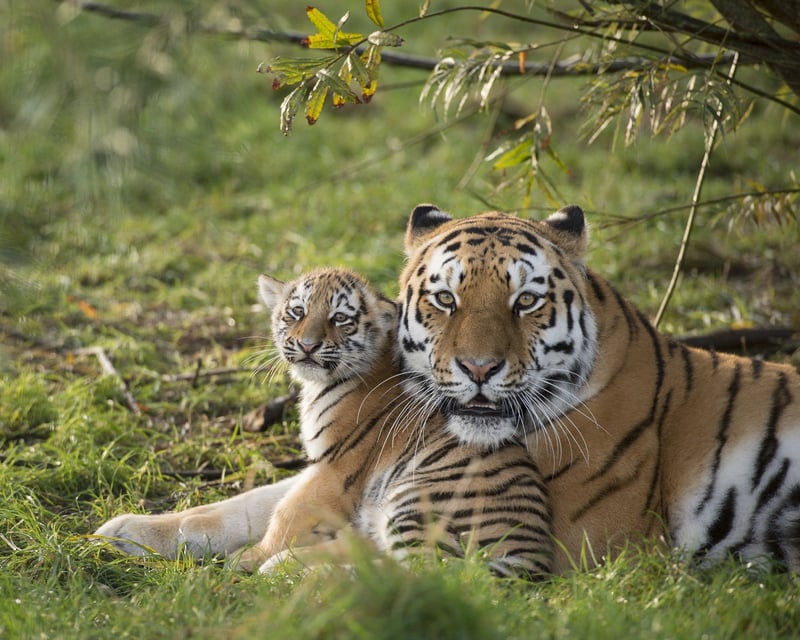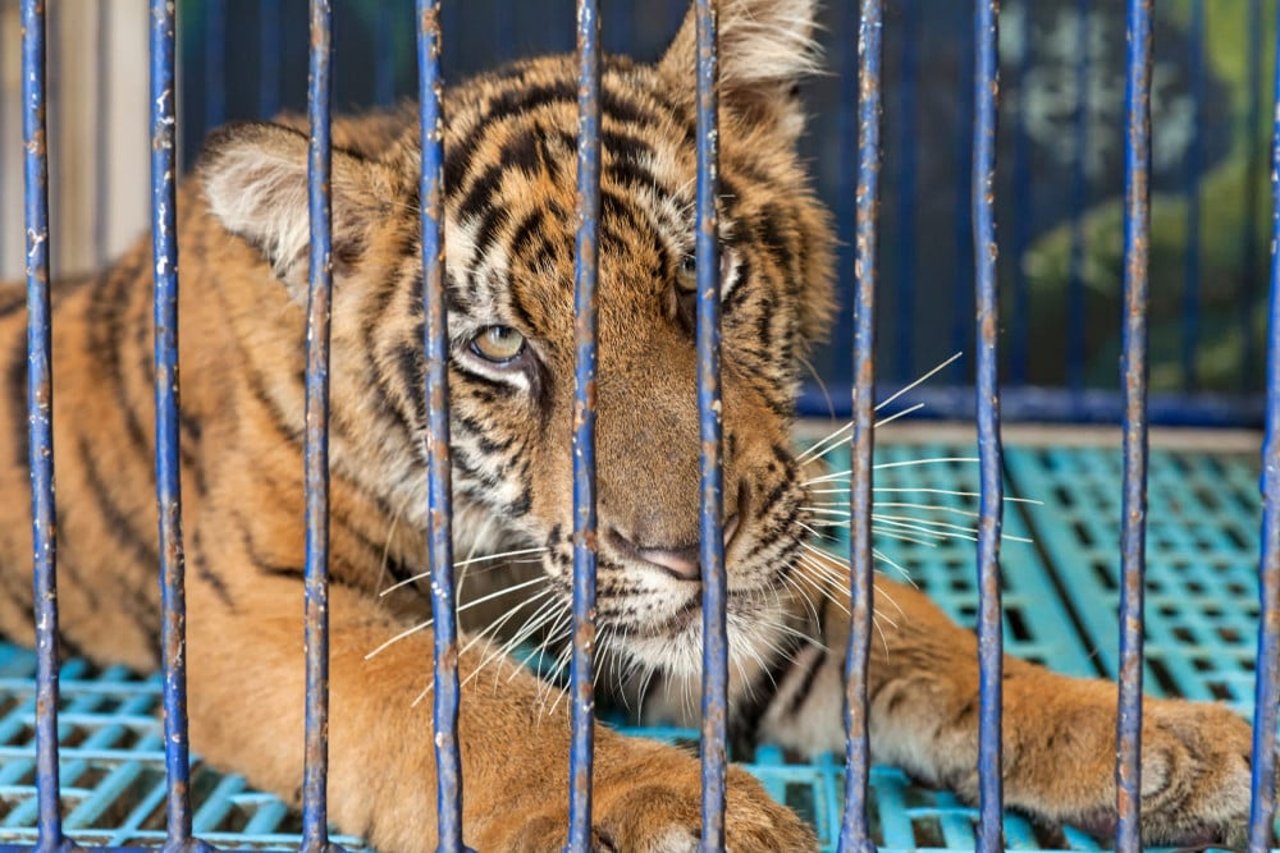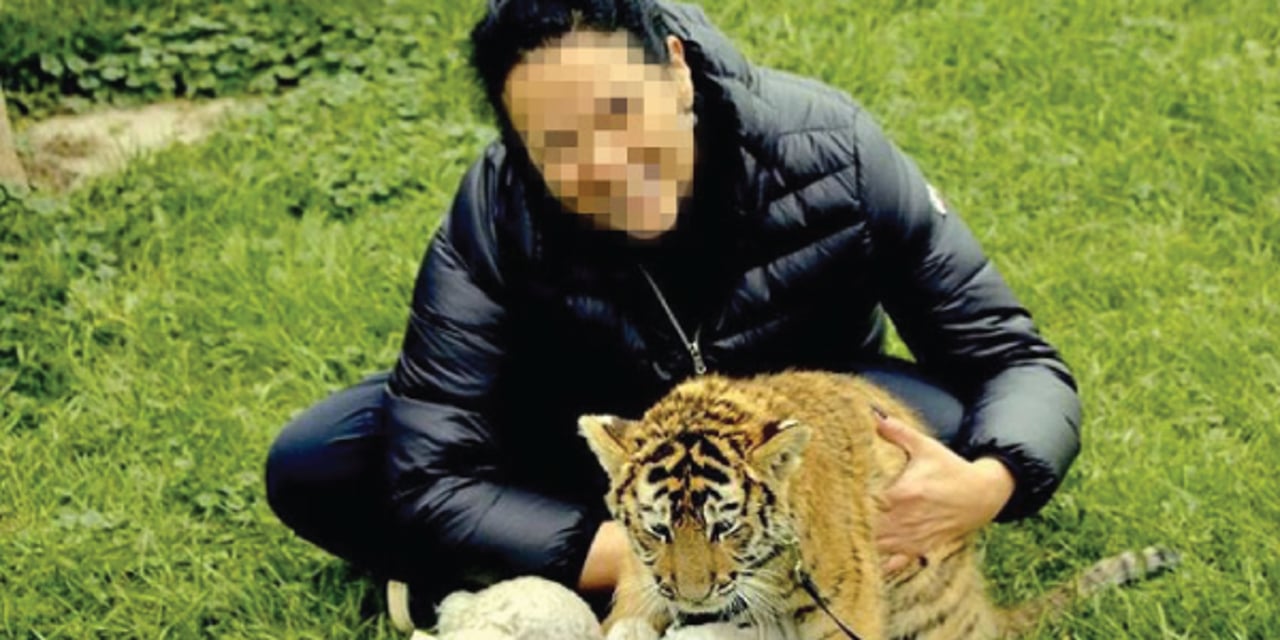
The passage of the Big Cat Public Safety Act means the era of exploitation is almost over for big cats like lions and tigers in the US.
The Big Cat Public Safety Act bans the private possession of big cats and the cruel cub petting industry. After passing Congress, the bill is headed to President Biden who is expected to sign it.
This is a big deal for big cats. Here are the top three ways that the Act will protect big cats.
1. Ends the Private Possession of Big Cats
Lions, tigers, and jaguars don’t belong in human homes. In her natural habitat, a tiger’s territory stretches for miles. She can’t thrive when she’s chained in a basement or confined to a barren cage. It’s not possible to fully provide for the psychological and physical needs of a big cat in captivity.
Unfortunately, possessing big cats was legal in multiple states—until now. In spring of 2021, a tiger walking around the Houston suburbs made international news. Thankfully, India was rescued and transferred to a sanctuary. Her story isn’t unique, though many big cats don’t get a happy ending. Most big cats who are privately possessed are hidden from public view, languishing in dirty cages or chained up.
2. Bans Cub Petting
The cub petting industry inflicts severe suffering on big cats. “Cub petting” refers to selling interactions or photo-ops with big cat cubs. Because big cats can only be used in interactions until they’re 12 weeks old, they are continually bred in order to supply new cubs. Cubs are prematurely weaned and forcibly separated from their mothers. Some die, and those who survive are discarded when they’re no longer profitable. Some cubs are condemned to a lifetime in a small cage without adequate care. Others are killed for their body parts and bones or are lost to the black market.
3. Strikes a Blow to the Roadside Zoo Industry
Roadside zoos make big money off cub petting. Exhibitors and zoos that allow cub petting charge visitors hundreds of dollars for ten minutes or less with a tiger or lion cub. Not only does the passage of the Big Cat Public Safety Act cut off a major revenue source, it also sends the message that the industry’s days are numbered. As more people learn that wild animals used in cruel interactions are suffering, fewer people and travel companies will support venues that offer them.
This week the message is loud and clear—Big cats don’t exist for our entertainment or profit. Help ensure no wild animal lives in a cage by pledging never to buy a wild animal as a companion.

